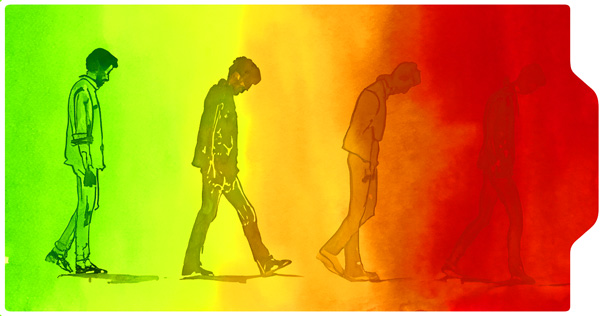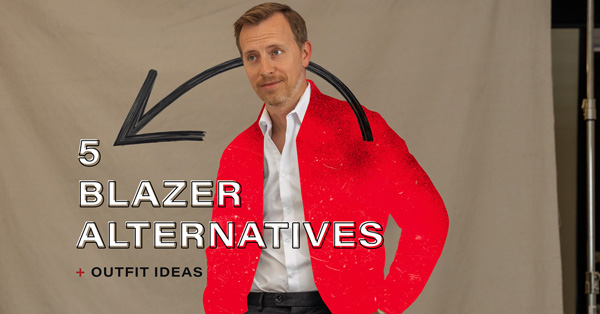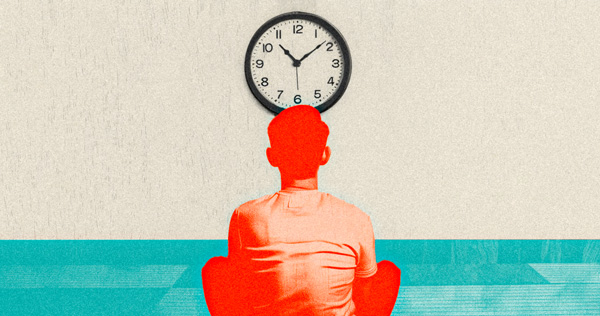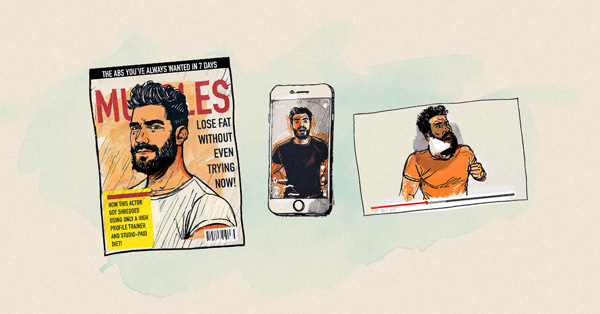Every Friday, I’m compiling a list of five things that meet one criterion. “What is that criterion,” you ask? Well, it’s going to change every week and you’re just going to have to try and keep up.
This week…
Five Bad Habits You Need to Drop (…Like a Bad Habit)
Many people will argue that they have no bad habits of any kind. Because they don't do any sorts of drugs or break the law or treat people poorly, there is no need to look for anything to remedy. But we've all got some bad habits somewhere in our life. We may not necessarily categorize them as negative or even regard them as habits… but they are absolutely represented in all of us.
So, please quickly come to grips with the fact that we can all improve in some way and completely disregard the recent popular rationale of “I don’t believe in New Year’s Resolutions because they imply that I need to improve myself” that has handcuffed many people to types of behavior that, unbeknownst to them, affects them and everyone around them in some way.
If you do believe in personal annual oaths and you happen to maintain any of the five habits listed below, I’d say you’ve got your work cut out for you over the next nine months.
5. Chewing With Your Mouth Open
This is just gross and inexcusable. If you choose to chew with your mouth open (and many people seem to do it without realizing it, after a lifetime of tolerated visible mastication), you are either a four-year-old or just terrible at the whole “manners” thing. Whether you do it when trying to speak or not is completely irrelevant – nothing you say, no matter how important, will ever validate the disgusting-ness of seeing you try to speak through a mouthful of mashed food. This habit remains rampant in our world despite the incredibly simple process to remedy it:
a. put food in your mouth
b. close your mouth
c. chew the food
d. swallow the food
e. speak
If you don’t follow these guidelines, I will immediately attempt to embarrass you by very loudly asking if you were raised in the forest primeval (also: I will not be asking you to join me at any meal for a minimum of 12 months).
4. Using Filler Words and Sounds
If you or I printed out a day’s worth of the words that we speak, how many times would we see “like” or “uh” or “so” or “you know” or “man” or “dude” on that embarrassing piece of paper? If you had to pause to think about this, then the total is probably much higher than it should be. Why do we say these things so much? They serve no purpose, most of the time. Usually, their continued existence in your life relates to an involuntary habit as a result of forged instinct. You heard a few filler words come out of somebody else’s mouth once, slowly integrated those words into a few of your own sentences and before you knew it, you were unable to communicate without them. Filler words are the heroin of the language world. The withdrawals will not be easy.
An easy way to practice improving your conversational clarity and efficiency: writing. Have you had to write a speech or presentation recently? Did “you know” pop up in every statement? Does “like” appear every ten words in one of your emails or letters? No (at least… I hope not). Most people will edit themselves when writing and really well-spoken people will edit themselves when speaking, too. The goal is to speak in the same fashion that you write, not the opposite (never the opposite).
3. Being Late
Many things are beyond your control. You can’t predict when or where a car accident will occur, where the subway line will break down, or whether or not your power will cut off in the middle of the night and reset your alarm clock (that last one is a good fake-excuse, if you ever need one). But usually, if we’re late, it’s our own doing – we get caught up watching a bad movie on cable, getting dressed, or updating our iPod, and effectively disregard the time to which we agreed to meet someone or be somewhere. For whatever reason, very little emphasis is placed on personal punctuality in our current world even though our increasingly overloaded schedules probably dictate it more than ever.
The simple solution? Just be on time. It’s really not that difficult. Set your clocks forward. Set alarms. Allot extra time in case of traffic. Wake up earlier (which means going to bed earlier… which you will be able to do if you woke up earlier that morning). Arrive early and kill some time on your own, if you must.
Being late to an afternoon movie with friends you see twice a week is not a dire misstep but that behavior – whether you realize it or not – creates a pattern and an instinct in your mind that will undoubtedly carry over to the workplace or more meaningful social events. Plus, you’ll be known as “the one who is always late” and that’s nowhere near as good as being able to be the person who points out “hey, don’t blame this on me — I’m always on time”.
2. Speeding
Hopefully, you already know that the odds of perishing in a horrible collision increase dramatically when a car exceeds the speed limit. But were you aware that accelerating beyond 60 miles per hour could also dramatically affect your car’s fuel efficiency. The adoption of speed limits between 55 and 70 mph across the country are partly based on safety but also largely tied to the fact that, at high speeds, vehicles consume far more fuel.
Is it worth getting somewhere in less time if you are literally paying for it? Why not just plan your trip accordingly, be on time (remember that, from above?), and not use up as much gas? We speed out of a longstanding habit amongst not only ourselves and our friends but the entire driving community – if you’re cruising along at the speed limit on the interstate, people give you weird looks and hurry to pass you. If you want to save some money and reduce the strain on your vehicle, disregard these people, count your money, and just sing along with the radio.
1. Not Getting Enough Sleep
Whether it’s as a result of working overtime, a lot of late night classes, loud neighbors, or insomnia (clinically diagnosed or not), many Americans simply do not get enough sleep. Though being awake more can lead to getting more constructive work done in the present, a lack of sleep is not healthy and may shorten your life. Study after study after study points out that, even if you’re able to function well on little to no sleep, this behavior proves to be ultimately very unhealthy.
(Though if you broke it down, being awake 20 hours per day for 60 years is the same as being awake 16 hours per day for 75 years, so it’s… not that horrible, I guess, if you die young as a result of less sleep. Wait. Scratch that part. I didn’t mean it.)
The best personal recommendation I can make (and I used to be a person who slept only 2-4 hours per night) for getting into a healthy sleep cycle is melatonin. It’s not going to work like Tylenol PM and just knock you out upon ingestion (nor will it create a dependence) but it will slowly regulate your body to fall asleep (and stay asleep) at a reasonable time every night. Plus, it’s a good antioxidant. (Look it up, ask your doctor, take at your own risk.)



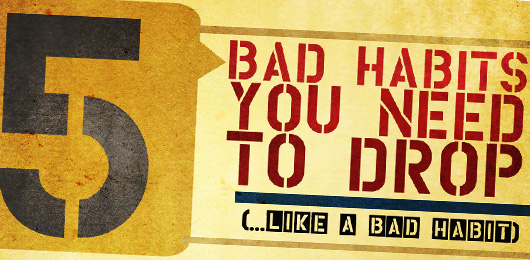
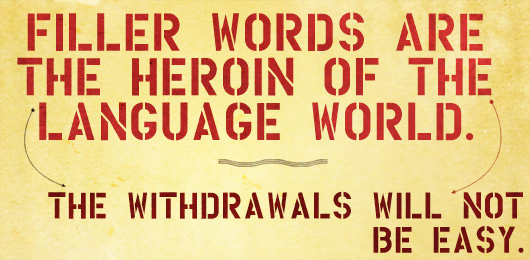




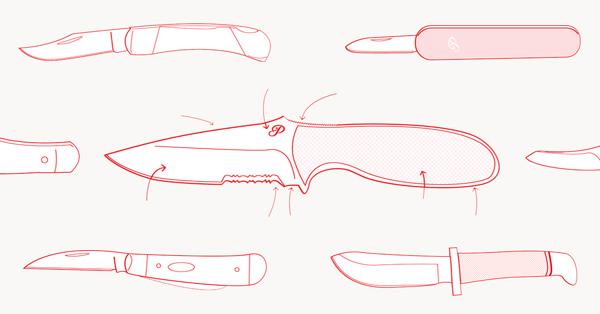
![No, Timeless Style Is Not a Made Up Marketing Term [Essay]](https://www.primermagazine.com/wp-content/uploads/2023/05/timeless-style_feature.jpg)


